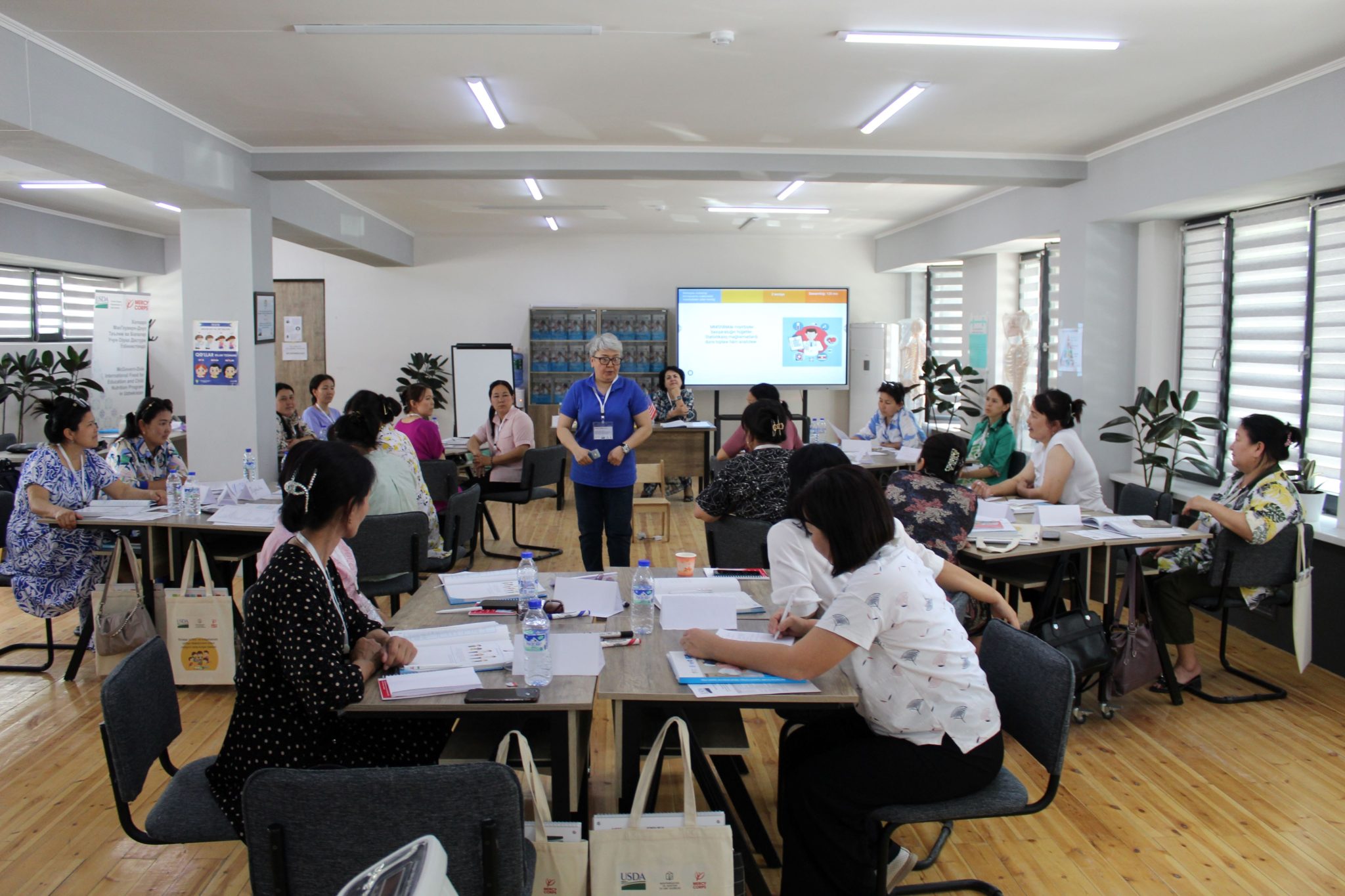McGovern-Dole Food for Education and Child Nutrition Program in Uzbekistan
The problem:
Uzbekistan has made notable progress in economic development and educational reform, but significant challenges remain, particularly in rural areas. Approximately 12% of the population lives below the poverty line, with 75% residing in rural regions. The COVID-19 pandemic exacerbated these issues, pushing an additional half-million people into poverty due to decreased exports, reduced remittances, and increased employment insecurity, especially among young entrepreneurs and small business owners. Access to quality pre-primary education is a critical concern, as it lays the foundation for future learning and development. Despite national efforts, the number of preschools has decreased by almost half over the past 20 years, leading to limited access to early childhood education. As of 2021, only 62.4% of the 2.8 million eligible children were enrolled in preschool programs, with rural and under-resourced areas facing the greatest challenges. This situation threatens to undermine the country's long-term educational and health outcomes, particularly for its youth population.
The solution:
InfoCapital Group LLC (ICG) conducted a comprehensive Baseline Assessment for Phases II and III of the McGovern-Dole Food for Education and Child Nutrition Program in Uzbekistan. This program, implemented by Mercy Corps with funding from the USDA, aims to improve educational outcomes and nutritional status for children aged 3-7 years old in 294 preschools across the Republic of Karakalpakstan and the Surkhandarya Region. The assessment conducted by ICG was crucial for understanding the current state of education and nutrition in these regions, particularly in light of the challenges posed by poverty and the COVID-19 pandemic.
The Baseline Assessment involved collecting and analyzing data from the target preschools to establish a clear understanding of the existing conditions. This included evaluating access to education, the quality of educational facilities, the nutritional status of enrolled children, and the impact of recent reforms on preschool enrollment and educational quality. ICG’s work also focused on identifying the specific needs of the most vulnerable populations, particularly in rural areas, to ensure that the program's interventions were effectively targeted. The baseline assessment for the McGovern-Dole Food for Education and Child Nutrition Program targeted specific groups with tailored methodologies:
Education: The Reading Readiness Assessment Tool evaluated 2,546 children aged 4-6.
Nutrition and Health: The Dietary Diversity Assessment Tool surveyed 282 parents/caregivers.The Cooks’ Observation Checklist assessed 138 cooks, and the Nurses’ Assessment Tool involved 131 nurses.
Infrastructure: The Infrastructure Assessment Tool observed 134 preschools.
By providing a detailed and accurate baseline, ICG enabled the program to tailor its interventions to address the most pressing challenges in the target regions. The data collected served as a foundation for measuring the program's impact over time, ensuring that resources were allocated efficiently and that the program's goals of improving educational outcomes and child nutrition were met. Through this assessment, ICG contributed to the broader efforts to enhance the quality of pre-primary education and support the long-term development of Uzbekistan's youth, particularly in the most underserved communities.
Start date:
05/2023
Services:
Client:
Mercy Corps Uzbekistan




